

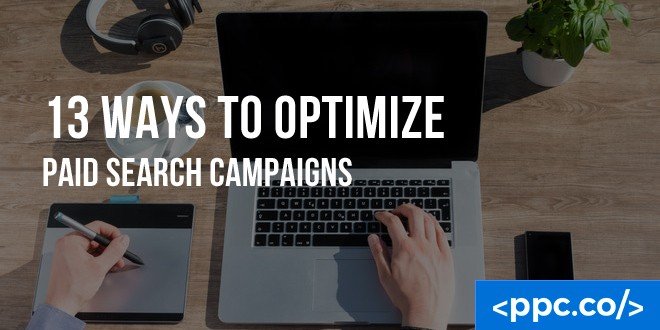
Have you wanted to optimize your paid search campaigns?
The thing is, managing your paid search campaign is all about data, and data comes faster after you launch a new digital marketing campaign.
Before you optimize your campaign, you should be sure your top goal is from your paid search marketing campaign.
The last thing you want to do is attempt to optimize everything.
If you follow our strategies outlined below, you’ll be on the way to getting more for your digital marketing dollar.
Table of Contents
ToggleWhen you advertise in several channels or campaigns in Google Ads, it’s vital to watch which channel produces the best residuals for your primary keyword performance indicator (KPI).
For instance, paid search has a higher conversion rate than YouTube, but that doesn’t mean the latter isn’t involved in the sale that paid search results gets credit for.
You should take time to grasp which search results campaigns and channels perform the best and then direct more of your budget that way.
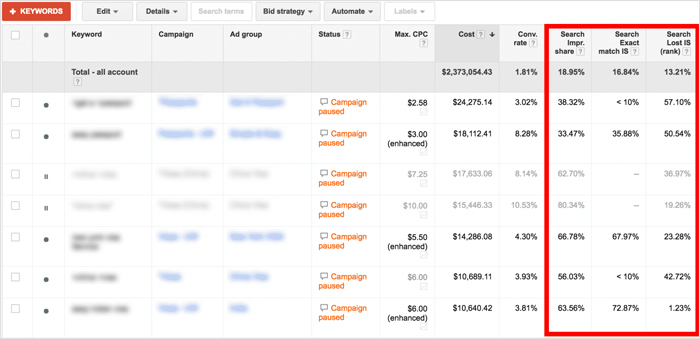
Another vital factor in optimizing is the budget and search impression share. This is especially important when you are bidding on branded search terms in your niche.
Go over your impression share for locations where you defend the keywords for your brand, as well as any search terms that often convert to sales for you.
If you find yourself falling behind on share as you have a small budget, review how the funding is allocated.
If you don’t know what your competitors are doing in their PPC campaigns, you may flounder when forming your own. They will either dominate you when it comes to getting clicks or you’ll make errors they figured out long ago. You don’t want to be playing catch up with your competitors, right?
There are many ways to leverage what you know about your competitors as you form your paid search campaign strategy.
PPC tools help you to analyze the paid search marketing strategy for each of your competitors.
You can find tools that show the ad keywords for your competition, as well as their current paid search advertisements.
Some even allow you to review their advertisement history, which offers you insight into the google ads/ppc ads that do the best for them.
Outstanding performance in your PPC campaigns depends on a robust account structure.
You should ensure that ad groups clearly defined and that the keywords in each ad group are closely related to each other.
The more organization and relevancy in the account, the easier it is to focus on improving PPC ROI in different parts of your business.
Experts in the industry report that it’s ideal to have several ad campaign for each of your products and locations. Another way to organize your campaigns that work well is to base it on your site structure.
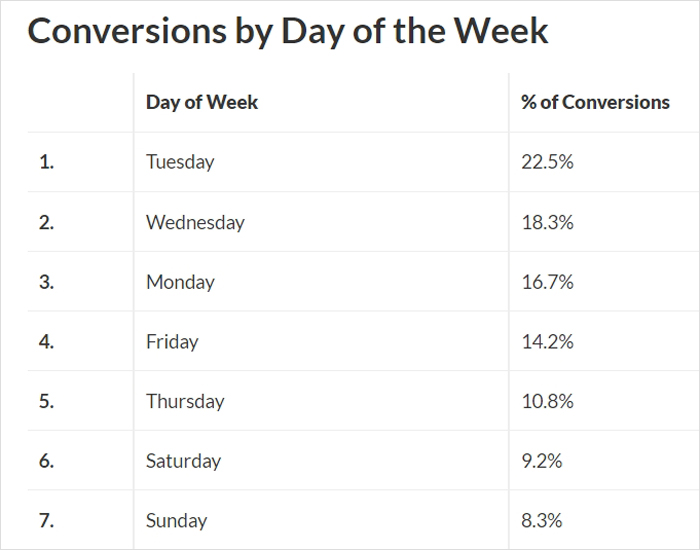
You can make bid adjustments at many levels. If you’re doing traditional, manual bid management, you do this at the keyword level.
But there are various aspects of your paid search campaign where you may consider applying additional bid adjustments.
For instance, you can adjust your bids by the day or hour of the day. Also, consider if you want to exclude certain times of the day or days during the week to ensure you get the best results.
Many recommend accessing Account Settings/Ad Schedule and putting in the dayparting schedule there.
Even if you run google ads 24/7, you have an appealing visual to review to check performance. Otherwise, you need to pull a new report every time.
After you do your competitive analysis, you should know how you can improve your online advertising copy to get more clicks.
Paid search ad copy is short – only 25 characters per headline and 70 characters for the ad – the text you write needs to get the person’s attention and get them to click.
If you see one of your competitors using a certain ad for weeks, there is a reason for it. The ad probably is getting clicks, so it’s a good template to use. Don’t copy what they’re doing, but look at the style and tone, as well as the keywords. After you look at some successful ads for your competitors, you probably can get an idea of what to do.
As well as getting some inspiration from your competitors, you should test your google ads to see which does the best. So, you should have two or more versions of the same ad so you can see the one that gets the most clicks.
Many marketers don’t realize how important performance by location is; some geographic areas perform differently from others. As you review and make adjustments to your top goal, you can increase the efficiency of your paid search campaigns.
If you are running your ad campaign nationwide, it’s also vital to keep track of how much budget the cities eat compared to how well they convert the prospect into a client.
You can look at the reports that reveal your location performance by accessing Campaign/Locations/User Location Report.
You can reduce your bids on locations that don’t perform as well or even think about excluding them.
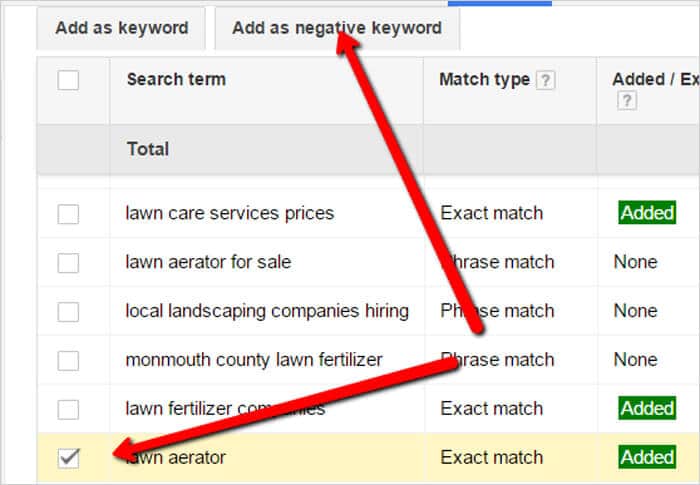
If you review what users are searching for to get a match with your keywords, it informs about how paid search logic operates. But also helps you pinpoint the parts of queries that you don’t want to show up for.
This is where negative keywords can play a vital role and may help you avoid wasting money.
What the system counts as a conversion plays a vital role in determining the bidding mechanism performance.
Goggle allows you to monitor many user action types, but consider the difference between having the actions checked in conversion and bidding formulas vs. having it only for additional information.
Over months, older conversions may not matter as much. Or you could include a conversion type that was getting double counted because it was part of a current conversion type.
It’s wise to review these every quarter to ensure only counting the proper user actions for a conversion.
Keywords are the basis of paid search and organic paid search marketing, so doing a regular keyword review is a vital step in this process. The keywords you select in your campaign need to be focused on getting clicks from prospects. So, only keywords that have commercial intent can apply to your campaign.
So, you want searchers using those keywords to be as close to purchasing as possible. And remember: Don’t only select the most expensive keywords; there are niche keywords that can perform well that cost much less.
Adjusting bids by keyword is crucial because you need to review how they perform vs. the goal. You should ask yourself: Are there some keywords that don’t perform even though you check search queries, adjust bids, test landing pages, and testing various match types?
If that is the case, it may be time to remove these keywords from your campaign.
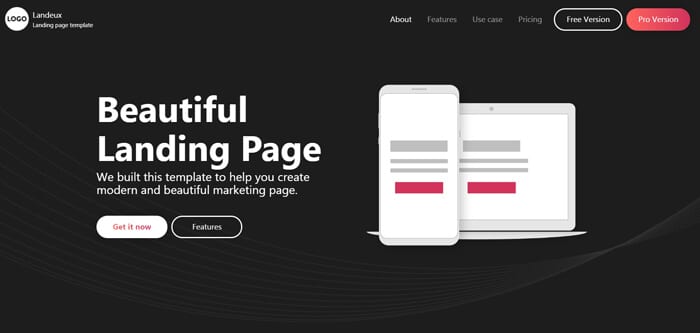
The landing page may be overlooked when measuring performance because they aren’t part of the ads account.
Nonetheless, the landing page is crucial to your ad account’s performance.
Why do people overlook landing pages?
First, landing pages are not as easy to adjust as other elements of a campaign.
Also, some brands may not want to spend money on landing pages. But landing pages often are the best way to convert prospects into clients.
Remember: Keywords and ads attract prospects to your website, and landing pages seal the deal.
It’s also important to review your campaign’s performance on various devices. Are your landing pages and pages easy to view on mobile devices?
How are your advertising campaigns doing on mobile vs. tablet vs. pc? And do you need to make adjustments to a particular device or exclude it from your ad campaign?
Don’t forget to check how each remarketing list is doing in a search and any necessary adjustments. If you’re using demographics for your inquiry, how is a particular age range doing vs. others?
Put in as many audiences as you wish at the Observation level, and see how they compare to baseline users.
Well, much depends on your goal.
Also, it depends on how your current campaigns are working.
For example, are your ad campaigns getting many clicks with a high click through rate (CTR) but only a handful of conversions?
Then it may be wise to review search queries to see how relevant they are.
Then, look at the landing pages to ensure they use best practices.
Also, review performance by device to note a big difference in different electronics your users are using.
The bottom line is there are many parts of paid search that you should review, analyze and optimize with regularity.
Let our paid search management services help you shine above your competition and maintain the ROAS you deserve.
Contact us today!
Please fill the below form to download the PDF
“*” indicates required fields.
Please fill the below form to download the PDF
“*” indicates required fields.
Please fill the below form to download the PDF
“*” indicates required fields.
Please fill the below form to download the PDF
“*” indicates required fields.
Please fill the below form to download the PDF
“*” indicates required fields.
Please fill the below form to download the PDF
“*” indicates required fields.